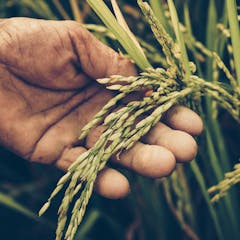
Articles on Intellectual property rights
Displaying 1 - 20 of 46 articles

The newly signed global Treaty on Intellectual Property, Genetic Resources and Traditional Knowledge might improve the patent system, but is unlikely to improve protection of Indigenous knowledge itself.

Can you patent something Indigenous peoples already know about? Too often, the answer is yes - but moves are afoot to stop it.

Kylian Mbappé has secured a commercial trademark for his celebration pose, and is looking to protect his name and quotes too.

It may seem extreme, but there’s a reason the law allows it.

In the Fall Economic Statement, the Canadian government signalled its commitment to the right to repair.

Traditionally seen as an American holiday, more Australians are preparing to celebrate Halloween. Here’s what we know about costumes, cosplay and copyright, just in time for the spooky season.

The mānuka honey trademark case shows how Aotearoa New Zealand’s law lacks substantive protections for Māori intellectual property rights.

Nigeria’s president, Muhammadu Buhari, recently signed the copyright law. Its provisions will be beneficial only if it is well implemented.

For some producers, the American approach to EU delicacies really grates.

The global trade of counterfeit and pirated products costs countries like Canada billions a year. Governments and industries must come together to protect Canadians.

Artists and photographers have strongly opposed their distinct styles being replicated by AI image generators. And the law has yet to catch up with this issue.

Corporations restrict what farmers can do with their own seeds, as well as their farm equipment when it breaks down.

Recent events have forced fans to reconcile their love of Dungeons & Dragons with the reality that the game’s owner, Wizards of the Coast, is a large corporation with commercial interests at heart.

To maintain its competitive edge, the owners of Dungeons & Dragons are proposing changes to the ownership of the game’s intellectual property and the way it makes money.

Plant breeders must now engage with kaitiaki if special relationships with a plant have been asserted. But Māori have no say on the introduction of exotic plants that could become invasive.

The key to supporting science innovation is funding and shaping it at its earliest stages, while innovative ventures are still housed within universities — and even before the ventures are founded.

The Russian government has essentially legalised intellectual piracy as a response to sanctions.

From vaccines to treatments and even medical equipment, intellectual property rights have hampered the world’s efforts to fight the pandemic.

Vaccine manufacturing doesn’t come cheap. It depends heavily on support from developed countries. It also requires much more than relaxing intellectual property rights and a desire for vaccine equity.

The process will take months, if it’s even approved. But just the threat of waiving intellectual property rights could spur faster action.

